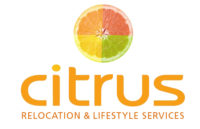Private Tuition
For the past 15 years we have been helping hundreds of families find suitable education institutions and private tuition lessons for their children.
We source both private and state school places and we work with a huge network of educational professionals including headteachers, governors, charities, organisations, Councillors and private tuition companies to ensure we can deliver a one stop education service to our clients. You can learn more about our schooling support here.
From nursery through to Higher Education, the importance of each child receiving the right education is paramount. We work with families to find school places that will best support children’s individual needs and abilities.
One of the most popular education requests we receive is for private tuition to help senior school pupils achieve places at the top UK universities. Our partners help students to leverage better grades for specific subjects and improve in areas where extra support it needed. One of our private tuition partners is Libra Education, whose ethos is to deliver breakthrough moments for every student under their wing.

Libra Education’s advice for preparing a student for a top UK university place…
Well-known for the quality of education and breadth of opportunity they provide to graduates, UK universities constitute just under 25% of the top 100 QS world-ranked universities. As a result, applications to study at many UK universities are competitive due to the wide variety of excellent candidates who apply from the world over.
The university application cycle can be separated into three stages: Preparation, Submission and Post submission – all of which are outlined below. Further below you will find a summary timeline of the key dates, deadlines and events. These will vary dependent on the school, course and course provider.
Preparation
Good quality preparation begins up to 3 years prior to university applications being submitted. Many courses require students to have studied specific subjects at secondary school whether for GCSE or A level. Therefore, students need a sense of which subject they are most interested in pursuing further for their future academic and professional career so that they can choose the most appropriate GCSE and A level subjects. Students will then need to study hard throughout this period to ensure they achieve the future necessary grades for entrance into their target courses.
During the preparation stage, students are well-advised to research and study their intended subject so that they can understand it better and know whether it is suitable for them. This is also an opportunity to bolster their future university applications by highlighting key actions taken to pursue their subject.
Submission
The majority of UK university applications are submitted through UCAS – the Universities and Colleges Admissions Service. The exceptions are non-UCAS institutions where an application will be submitted directly to the institution. The majority of students will submit their university applications via their school in the Autumn term of year 13. Students can expect to receive varying amounts of guidance on this process depending on which school they attend.
The key elements at this stage are to have the personal statement prepared and finalised as well as a good understanding of your chances of success in applying to these courses and universities; you need to understand whether your predicted grades are sufficient for the courses applied to and whether you can realistically achieve them at the end of your final school year.
Post-submission
Once your university applications are submitted, you will need to monitor your email account carefully. The majority of universities recommend that you add the relevant email addresses to your “safe senders” list so as not to accidentally miss any correspondence from them regarding your application.
You can track the progress of your application through UCAS. Many universities will also require you to set up an account with them for tracking your application. They will email you regarding any further information required such as additional admissions exams, evidence of high-quality schoolwork, attending interviews or providing proof of your English language proficiency as well as the associated deadlines.
Please find below a summary timeline of the key dates, deadlines and events:
- Year 9 – students choose their GCSE subjects to study in years 10 and 11.
- Year 11 – students choose their A level subjects to study in years 12 and 13.
- Year 11, May/June – GCSE examinations
- Year 12 – during school holidays, students should pursue independent research and study for the subject that interests them most which they are considering studying at university. This could include lectures, competitions, essay prizes, further reading or work experience.
- Year 12, July/August – students should draft and redraft their personal statement, drawing on their experiences and independent subject research in Year 12.
- Year 13, Autumn Term – students receive their predicted grades from schools in the autumn term, these are based on the student’s work and learning trajectory in year 12. These predicted grades will inform them as to whether their applications to desired university courses are realistic or require additional work or rethinking.
- Year 13, Autumn term – the majority of schools will send their UCAS applications and other university applications during this period (though the deadline is not until the 15th January, see below). Dependent on the course and university, additional information will be requested and assessments organised in the weeks and months following submission.
- Year 13, 15th October – this is the deadline for applications for Oxford, Cambridge and most courses in medicine, dentistry, and veterinary medicine/science.
- Year 13, December – interviews for Oxford and Cambridge are held.
- Year 13, 15th January – this is the deadline for UCAS applications for the majority of undergraduate courses.
- Year 13, January/February/March – the majority of students can expect to hear of the results of their applications during this period. Students will most likely receive a conditional offer stating the final grades and any additional conditions such as an English language qualification which they must achieve to secure their place. The deadline for when you need to respond to an offer will vary.
- Year 13, May/June – A level examinations.
- August prior to starting university – students receive their A level results in mid-late August.
- 31st August – this is the deadline for any remaining conditions to be met.
- September – university term starts for most providers.
- October – university term starts for Oxford and Cambridge
How can Libra Education help with private tuition?
They offer three key areas of consultancy for UK universities. These are:
- Oxbridge Consultancy – for students who are aiming to apply to either Oxford or Cambridge and four other top universities.
- G5 Consultancy – for students who are aiming to apply for Imperial College, London School of Economics or University College London and two other top universities.
- Russell Group Consultancy – for students who aim to apply to the top 24 UK universities, excluding the G5 or Oxbridge.
We hope that this article will provide you with greater preparation for your child’s applications to study at university in the UK and we wish your child every success in this next exciting stage of their academic career.

Want to know more about how Citrus’s Education team can help support your child with private tuition?
Email: info@citrusrelocation.com
Call: +44 (0)203 303 320
Or complete the contact form below:
Contact Us
There’s no task too big or small for our dedicated team so if you are planning to relocate, are moving for work or need help finding the right home for you, please get in touch.
Speak to one of our Relocation Agents today either by filling out the contact form, using our live chat or one of the below methods.
Email: globalmobility@citrusrelocation.com
Call: +44(0) 203 303 3208
